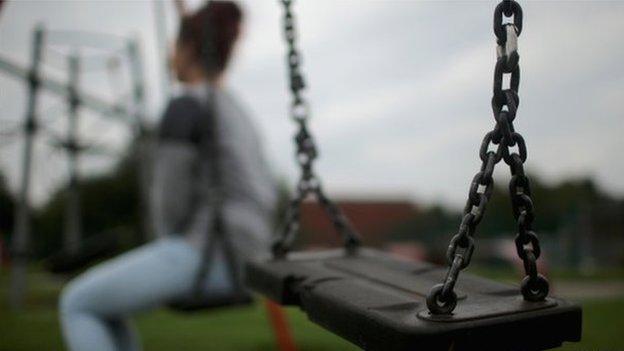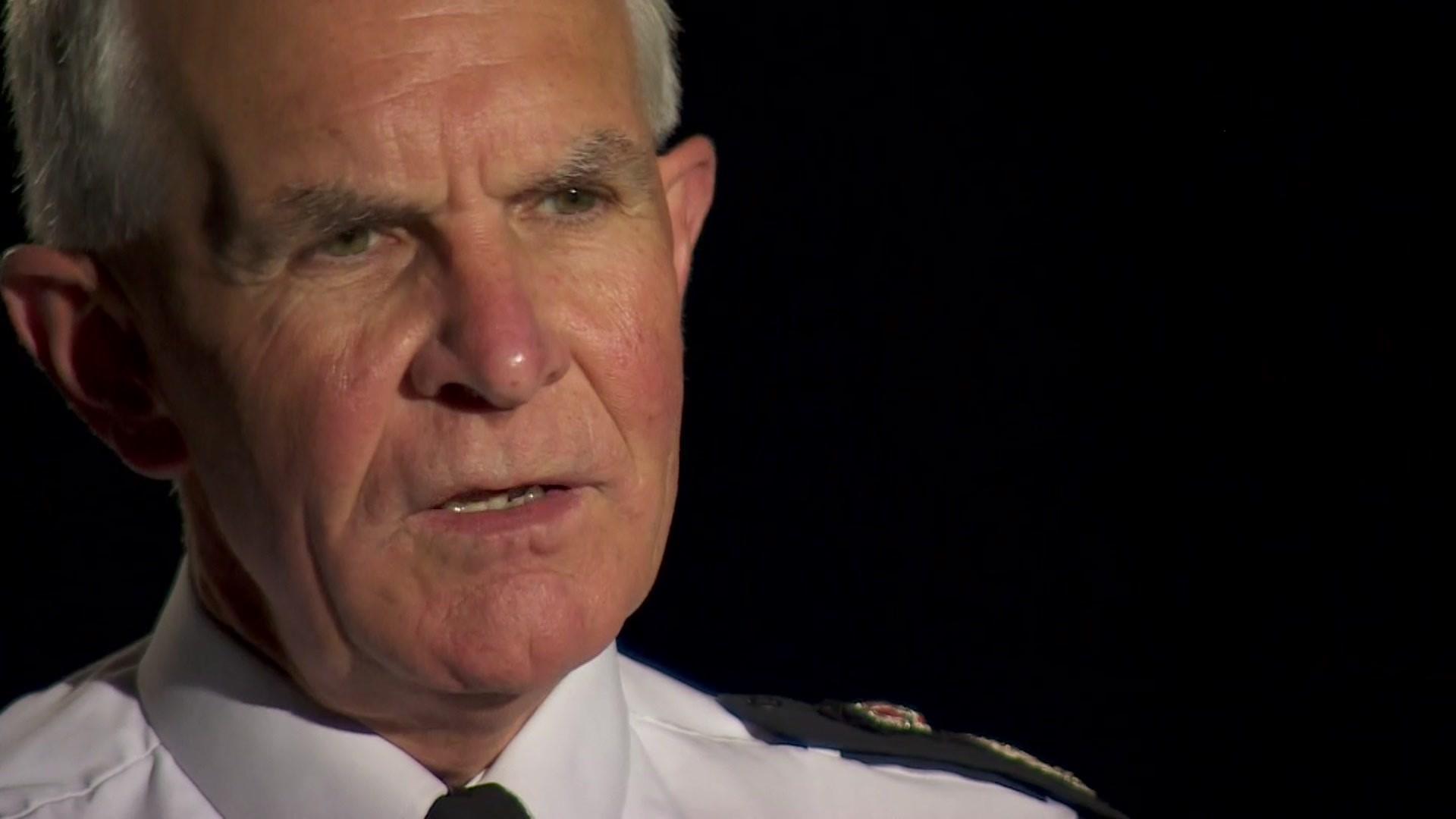Missing children failed by police, inspectors say
- Published

Children in England and Wales who go missing are being left at risk of serious harm because of "unacceptable inconsistencies" in the way police respond, the police watchdog has said.
Nearly 67,000 children reportedly went missing once or more last year.
Some forces wrongly recorded children as "absent", and saw those who went missing repeatedly as "time-wasters", HM Inspectorate of Constabulary found, external.
The National Police Chiefs' Council said improvements would be made.
The Inspectorate report - entitled Missing Children: Who Cares? - said there were many reasons why children go missing - from being lost or separated while out with their parents, to running away, or disappearing from care under coercion - but all such children were potentially at risk of harm.
The HMIC said a categorisation of "absent" denoted that the child was considered to be at no apparent risk - but it said some forces termed children absent "when the risk they faced clearly meant that they needed an immediate response."
The report highlighted instances where runaway teenagers were sworn at or pushed to the floor by police.
One 13-year-old girl told inspectors police threatened her with a Taser.
"They said... 'If you carry on running away, we are gonna Taser you and restrain you' and I was just like 'No, I'm trying to get away from the problem, that's just gonna make the problem worse'," she said.
'Negative attitude'
Another girl, aged 17, said she was called "an attention-seeking little bitch" by police.
She said: "I've been, like, sworn at. I've been told that it's my fault people are out there getting raped because they (the police) can't stop them."
HMIC inspector Wendy Williams called for "operational and cultural changes", saying the negative attitude of some officers undermined children's trust in the police.
The inconsistencies were seen across all aspects of the approach to missing children, she said, including assessing risks, investigating or supporting children.
Prioritising missing children would help police forces address "the cause rather than the symptom" of issues such as child sexual exploitation, child abuse, trafficking and mental ill-health, she said.
She also recommended that a national database of missing children be set up.
'More to be done'
Inspectors also said good work was taking place. West Yorkshire and South Wales were among the forces doing good work, as they had dedicated officers, it said.
However, children's charities said too many children were being left at risk.
The NSPCC said it was "deeply disconcerting" that police did not have a unified approach to dealing with missing children, despite several high-profile grooming trials in recent years.
"There are often deeply disturbing reasons why children go missing, and these should be investigated by officers - as opposed to treating the young people as a nuisance," it said.
Peter Grigg, of The Children's Society, said missing children were "still being let down" by the police.
Chief Constable Mike Veale, of the National Police Chiefs' Council, said the report showed that "more needs to be done" to ensure consistency across all forces.
"We will work closely with chief constables, the Home Office and the College of Policing to address the recommendations so that missing children who are identified as high-risk and those who have underlying issues or problems get the support they need from the police.
"Police forces cannot solve these problems alone and we are committed to building a consistent, multi-agency response to missing and vulnerable people."
- Published10 December 2015

- Published4 August 2015

- Published29 October 2014